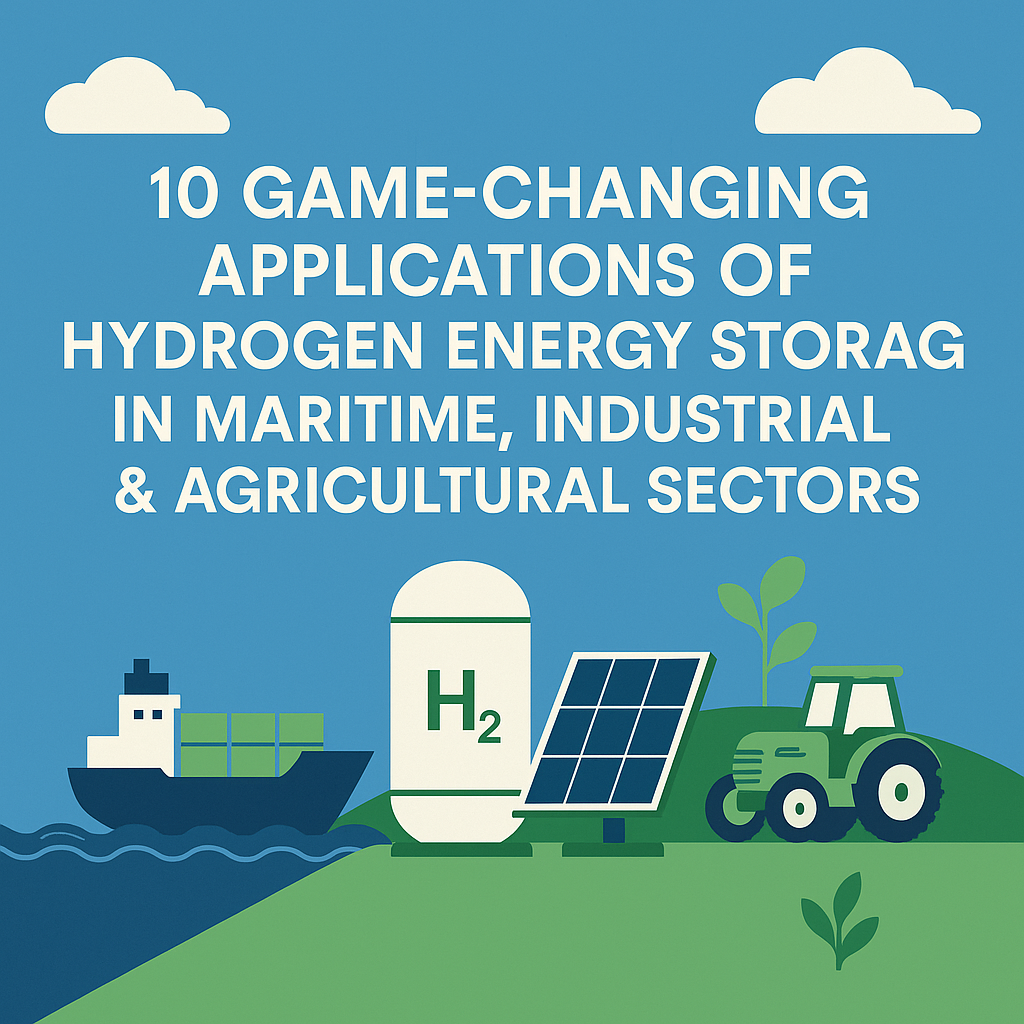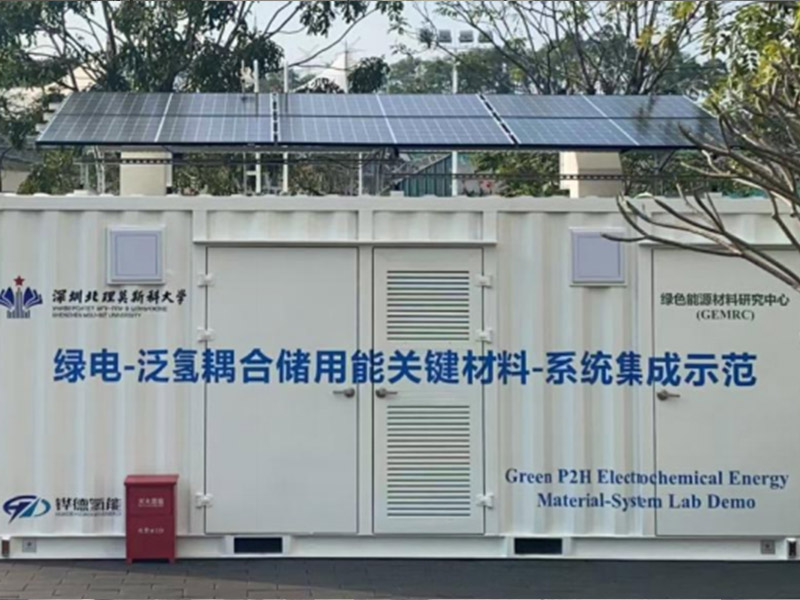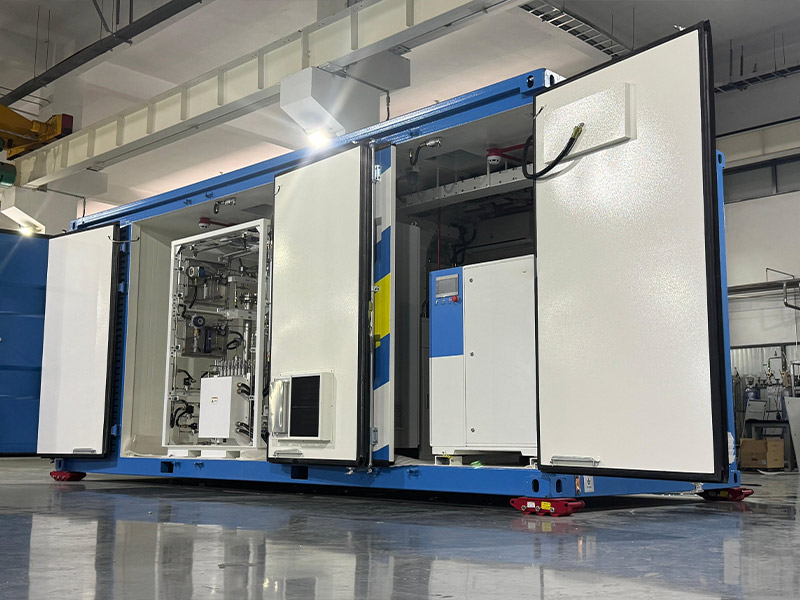Hydrogen energy storage is no longer just a concept for the future—it’s transforming how key sectors like maritime transport, industrial manufacturing, and agriculture manage and use power. As the demand for renewable energy increases, solar hydrogen systems and advanced storage solutions are emerging as vital tools in building a cleaner and more efficient energy landscape. This article explores 10 groundbreaking applications of hydrogen energy storage and how it’s revolutionizing operations across these sectors.
Keypoints
l Hydrogen energy storage enables zero-emission power solutions by storing excess renewable energy.
l Ships and ferries can use hydrogen fuel cells for clean, long-distance maritime transport.
l Ports benefit from hydrogen-powered cranes and equipment with fast refueling and longer runtime.
l Factories use hydrogen for backup power and to decarbonize heavy industries like steelmaking.
l Agricultural machinery and remote farms run on hydrogen, replacing diesel with clean energy.
l Hydrogen supports greenhouses and vertical farms with reliable power for lighting and climate control.
l Unlike batteries, hydrogen allows seasonal storage and is ideal for large-scale energy needs.

Unlike fossil fuels, hydrogen produces zero emissions when used as a fuel, emitting only water vapor. Its ability to store excess renewable energy—especially from solar panels—makes it a versatile solution for long-duration storage and energy independence. With the integration of home solar hydrogen generator systems and industrial-scale applications, hydrogen energy is quickly proving to be a scalable and sustainable power source.
The maritime sector is under pressure to decarbonize. Hydrogen fuel cells offer a viable path forward, powering ships without emitting carbon dioxide or sulfur oxides.
Large vessels can utilize onboard hydrogen energy storage systems to cruise long distances without reliance on traditional fuel.
Companies like MSC and Maersk are exploring hydrogen-powered container ships as part of their green transition.
Smaller passenger and cargo ferries benefit from compact solar hydrogen systems that recharge at ports equipped with solar generation and electrolysis units.
These vessels reduce air and water pollution in busy port cities.
Silent, vibration-free propulsion improves the passenger experience.
Port logistics, cranes, and container handlers are increasingly being electrified using hydrogen power.
Hydrogen offers rapid refueling and longer operational hours compared to batteries.
Ports can integrate solar-powered hydrogen generators for onsite energy production and storage.
Industries require stable and reliable energy. Hydrogen energy storage provides a robust backup power solution during outages or peak grid demand.
Hydrogen fuel cells can instantly supply power, avoiding costly downtime.
Excess solar energy from rooftop installations can be stored as hydrogen for use after dark.
Hydrogen is used as a clean alternative to fossil fuels in processes like steelmaking, ammonia production, and glass manufacturing.
When paired with solar hydrogen systems, these processes achieve near-zero emissions.
Major players like ArcelorMittal and Siemens Energy are piloting green hydrogen plants.
Forklifts, trucks, and other industrial transport within factories or logistics centers are now being converted to run on hydrogen.
Fast refueling and high power density make hydrogen ideal for continuous operation.
Centralized hydrogen energy storage facilities support vehicle fleets throughout the day.
Remote and off-grid farms often rely on diesel generators. Replacing them with home solar hydrogen generator systems allows for cleaner, quieter, and more sustainable operations.
Solar panels generate electricity during the day, which is stored as hydrogen for 24/7 energy use.
Farmers gain energy independence and long-term cost savings.
Tractors, irrigation pumps, and harvesters can be retrofitted or designed to run on hydrogen fuel cells.
Unlike electric batteries, hydrogen allows for longer work shifts with fast refueling.
Reduces reliance on fossil fuels and improves air quality in rural areas.
Hydrogen energy can support greenhouses, hydroponic farms, and vertical farming systems requiring stable power for lighting, climate control, and water pumps.
Hydrogen ensures power reliability during periods of low solar output.
CEA operators can store surplus energy seasonally with large-scale hydrogen energy storage units.
One of the most revolutionary uses of hydrogen energy storage is its ability to hold energy over weeks or months.
Unlike batteries that degrade and have limited capacity, hydrogen can be stored indefinitely.
This is crucial for sectors affected by seasonal energy demand or inconsistent renewable generation.
Hydrogen energy storage isn't just something for scientists or big companies anymore—it's becoming a real, practical solution in many parts of our lives. Whether it's helping ships run cleaner, making factories more energy-efficient, or giving farmers power in remote areas, hydrogen—especially when made from solar power—is changing the game.
Thanks to solar hydrogen systems, we can now store clean energy for when we really need it, even at night or during cloudy days. It’s a smart way to make our homes, businesses, and communities more independent and environmentally friendly.
As we all look for better ways to cut pollution and save energy, hydrogen energy storage is proving to be one of the most promising options. It’s flexible, powerful, and ready to be part of everyday life.
Hydrogen energy storage involves converting excess renewable energy—such as solar or wind power—into hydrogen using electrolysis. This hydrogen is stored and can be later used to generate electricity, power vehicles, or fuel industrial equipment.
These sectors need scalable and reliable clean energy. Hydrogen offers long-duration energy storage, reduces emissions, and supports energy independence in off-grid or high-demand environments.
Yes. Solar-powered hydrogen production systems are ideal for industrial facilities looking to reduce emissions and energy costs while ensuring stable energy supply.
Hydrogen powers farm machinery, irrigation pumps, and greenhouses. It’s especially valuable for remote agricultural areas that need consistent and clean power.
Absolutely. Hydrogen fuel cells are being used in ships, ferries, and port operations to provide emission-free propulsion and reduce marine pollution.
Hydrogen is better for long-duration and large-scale energy needs, while batteries are more suited to short-term, high-efficiency applications. Hydrogen can also be transported and stored more easily over longer distances.
Solar hydrogen enables completely off-grid systems to run cleanly and reliably without depending on fossil fuel supply chains. It's ideal for remote farms, industrial sites, and island communities.
Hydrogen can be stored for months without losing energy, unlike batteries. This makes it a powerful option for seasonal energy storage or emergency backup power.
Yes, when designed and installed properly, hydrogen storage is safe. Modern systems include multiple safety features such as leak detection, pressure control, and reinforced tanks to ensure reliable home use.


